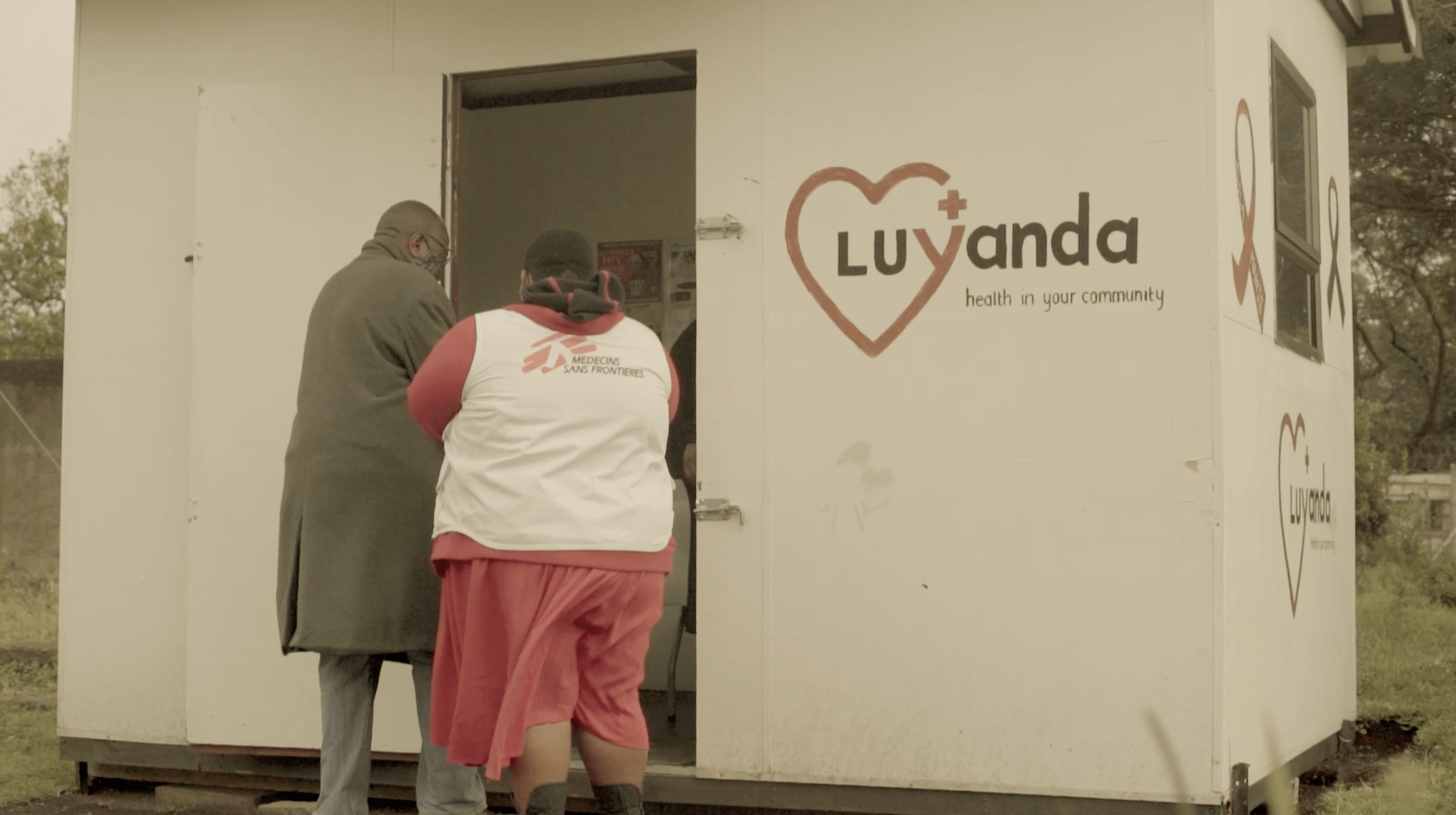South Africa’s KwaZulu-Natal Province has the highest prevalence of both HIV and tuberculosis (TB) in the country. Since 2011, Doctors Without Borders/Médecins Sans Frontières (MSF) has been working in the remote areas of Eshowe and Mbongolwane to help reduce HIV and TB deaths and prevent new infections. We partner with the local government and community leaders to pilot and refine innovative community-driven models of care.
The hilly topography in this region makes access to health services a challenge for many, but MSF has been able to take HIV and TB services into communities, initially going door-to-door and more recently by establishing rural health care hubs known as Luyanda sites in spaces where people congregate. They offer HIV counseling and testing, TB screening, and screening for non-communicable diseases such as diabetes and hypertension.
In 2019, the project became the first in South Africa to achieve the ambitious UNAIDS 90-90-90 targets for HIV. Since 2020, the team has been focused on following a similar strategy to bend the curves of the TB epidemic.

